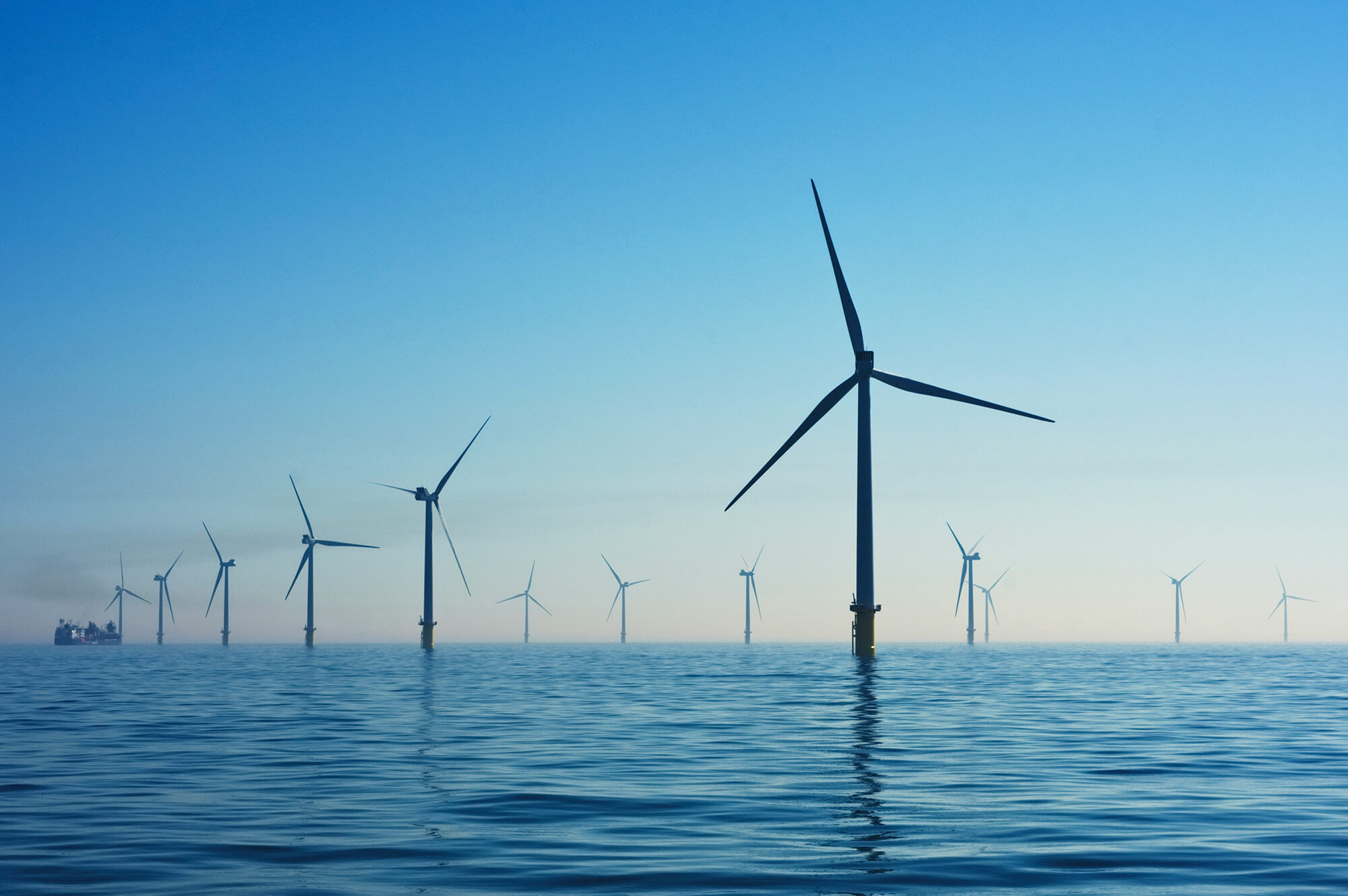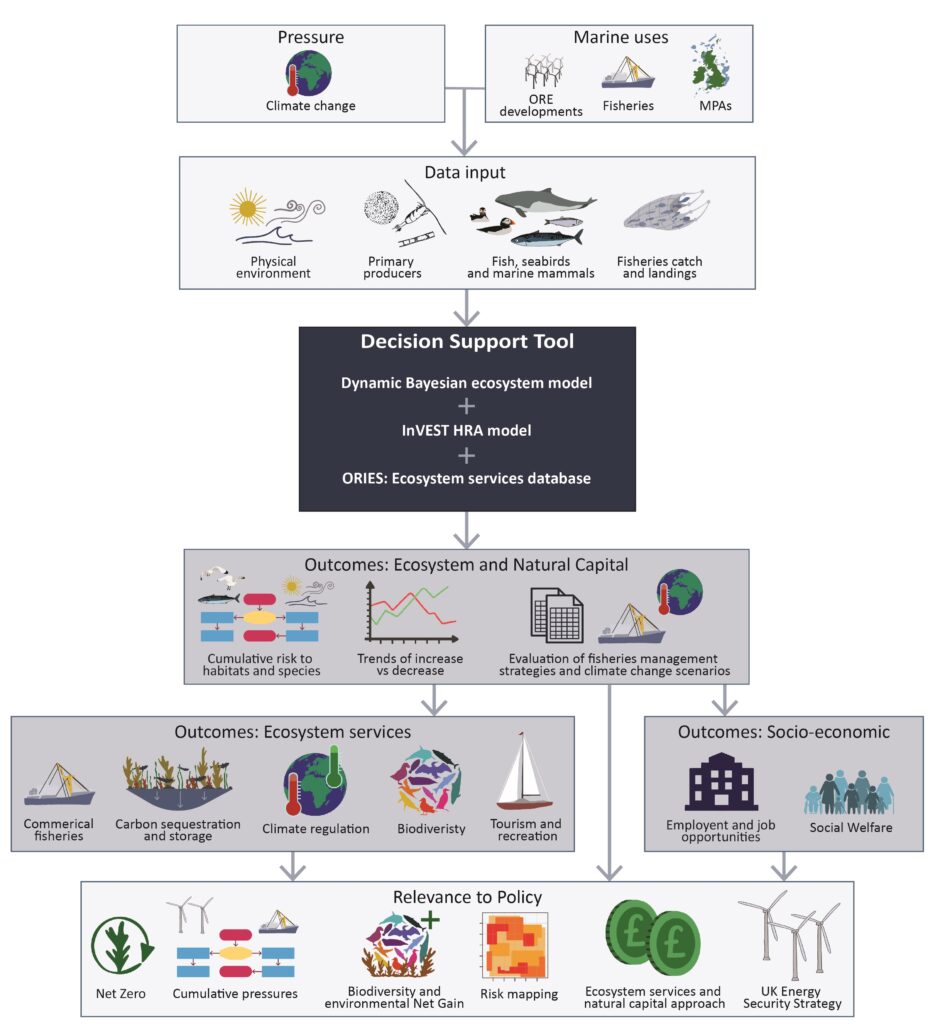Story
New method to evaluate ecological impact of offshore activities
01 August 2025
A recently published study from the University of Aberdeen and Plymouth Marine Laboratory has set out a new approach to help evaluate the ecological impacts of offshore activities.

Offshore windfarm. Nicholas Doherty | Unsplash
By integrating a dynamic ecosystem model with a comprehensive ecosystem services database, the team aimed to accurately forecast the environmental consequences of fisheries displacement and broader ecosystem-level changes resulting from offshore wind farm development.
The scientists says that this new methodology will have the ability to support marine spatial planners to balance and minimise conflicts and tensions amongst existing and future planned marine uses of natural resources, and ensure that future marine management and renewable energy policy is sustainable and evidence-based.
The proposed methodology also provides an approach to integrating Marine Net Gain interventions (i.e a conservation approach that ensures human activities in marine environments result in a measurable net positive impact on biodiversity), in terms of wider Natural Capital Accounting.
This will further progress understanding of ecosystem services and market-based approaches, which will enable stakeholders to access and compare global studies on the environmental and socio-economic outcomes of offshore wind farm developments.

Dr Neda Trifonova from the University of Aberdeen and lead author of the study said:
“The rapid expansion of offshore wind farms is a key component of global decarbonisation efforts. However, in the race to achieve Net Zero, it is essential to ensure that we do not inadvertently create new environmental challenges. Our study presents a methodological roadmap designed to support sustainable and evidence-based marine management and offshore renewable energy policies.”
“Given the dual pressures of climate change and spatial conflicts with existing industries such as fishing, our approach aims to enhance decision-making by balancing environmental and socio-economic trade-offs. We propose the use of dynamic ecosystem modelling to inform a risk assessment framework, supported by a comprehensive ecosystem services database.”
“At the heart of our methodology is supporting a nature-positive approach—a conservation principle that ensures human activities in marine environments result in a measurable net gain for biodiversity and ecosystem services”.
Dr Stephen Watson, co-author and Senior Ecosystems Services Scientist at Plymouth Marine Laboratory, said:
“To meet the UK’s ambitious marine energy, food security, and conservation targets, we must embrace a strategic transition in how we use and manage our seas. A core part of achieving ecologically sustainable change will be to consider the dynamic interactions between marine uses (e.g. fisheries and offshore wind farms) to attain these targets more strategically.”
“The outputs from the proposed methodological roadmap can support marine spatial planners to balance and minimise conflicts and tensions among existing and future planned marine uses of natural resources.”
“In this study we focus on the UK and North Sea but the proposed roadmap serves as an effective baseline and could be transferred to other marine systems globally. It has already been demonstrated that the roadmap can be implemented into European processes, enabling an ecosystem-based approach for cumulative impact assessments.”
This project was funded by the Natural Environment Research Council (NERC) and The Crown Estate (TCE), part of the ECOWind Programme, as well as the UK Energy Research Centre.
